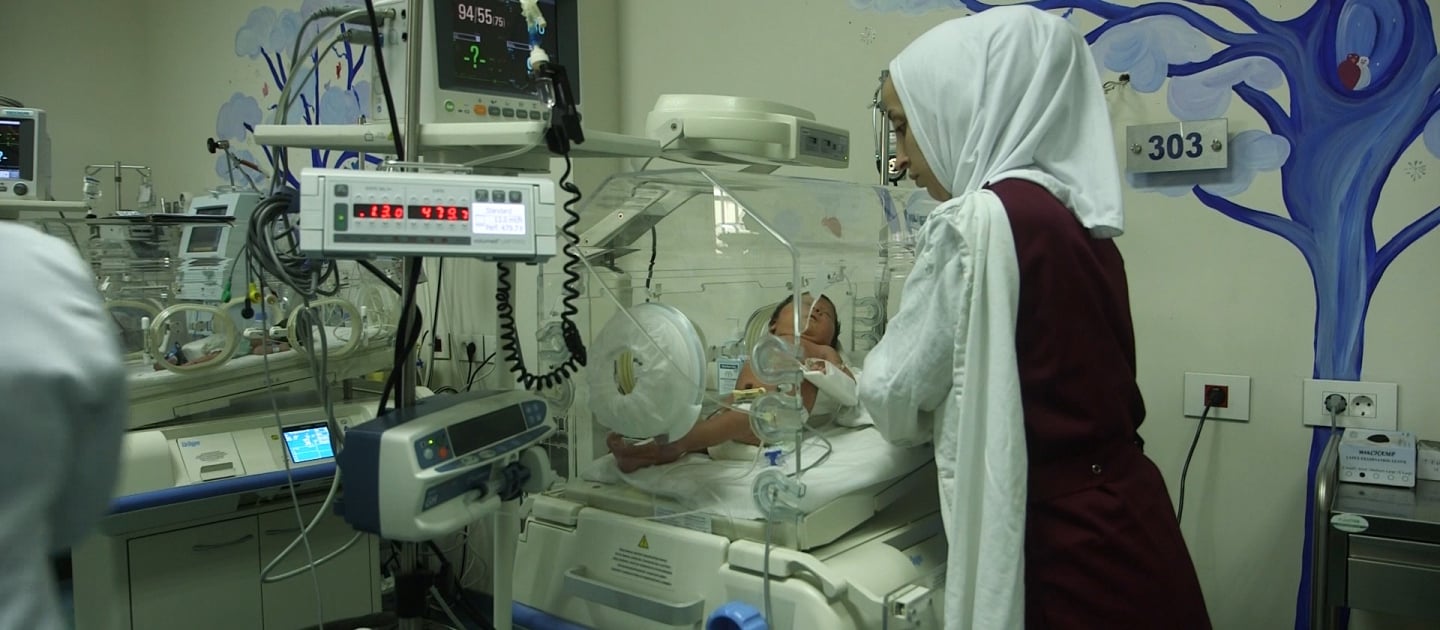Non-profit Birth and Beyond provides specialist paediatric treatment, giving hope to underprivileged Lebanese and refugee families alike.

A woman tends to a newborn baby in the neonatal intensive care unit at Karantina Hospital in Beirut, Lebanon. © UNHCR
“My daughter Aya was born with jaundice,” her father Mohammed, originally from Idlib in northwest Syria, explained. “She was here [in the hospital] for two days and they took great care of her. She has improved so we are taking her home.”
Aya’s specialist treatment was made possible thanks to a newly constructed paediatric ward at the hospital funded by a Lebanese NGO called Birth and Beyond. Their aim is to provide quality neonatal treatment to underprivileged families in Lebanon, including Syrian refugees.
Lebanon is home to more than a million refugees from the six-year conflict in neighbouring Syria. Around 12 per cent of children born to refugees are in need of neonatal intensive care. A leading reason for this is prematurity, which in turn can be the result of early marriage, poverty and lack of antenatal care.
Unfortunately, neonatal intensive care is not available in all Lebanese hospitals and refugees often need to travel long distances in order for their newborns to get the necessary treatment.
Robert Sacy, a paediatrician who founded Birth and Beyond, started the initiative to address the dual challenge of an insufficient number of paediatric intensive care places – especially in public hospitals – and the prohibitive cost of such treatment for underprivileged families.
“This is a massive benefit to refugees that they can receive quality care free of charge.”
“We always have this challenge of refusing people not only due to the lack of places, but mainly because of the lack of financial support,” Sacy explained. “There’s a need to have the best treatments with the best medical staff and best equipment in governmental hospitals.”
Last year around 4,500 refugee babies required neonatal intensive care, according to Michael Woodman, a senior public health officer for UNHCR in Lebanon. Despite the fact that the UN Refugee Agency covers 90 per cent of the cost, families still have to cover the remaining 10 per cent, which – no matter how small – can be prohibitive for many refugee families.
“Initiatives like Birth and Beyond are extremely important because they provide excellent quality care for refugees integrated in a public hospital,” Woodman said. “I think this is a massive benefit to refugees that they can receive quality care free of charge.”
Underprivileged children are all received with the same warmth and care, regardless of their nationality. Manal is from Tripoli, in northern Lebanon, and her infant son Oussama was admitted to the new paediatric intensive care unit at Qarantina hospital after suffering complications following heart surgery.
“The ward is excellent even in terms of equipment and machinery, I didn’t feel like I was in a public hospital at all,” said Manal. “The hospital is not going to cost me much. I can’t afford taking him to a private hospital, but here the government pays and so it’s better.”
Thanks to Birth and Beyond, Oussama and Aya have been given a second chance in life, and Sacy argues that the same level of care should be granted to every child born in Lebanon, regardless of their family’s financial situation. “I don’t understand why poor people should not have the right to be treated the same way as rich people.”
شارك على الفيسبوك شارك على تويتر